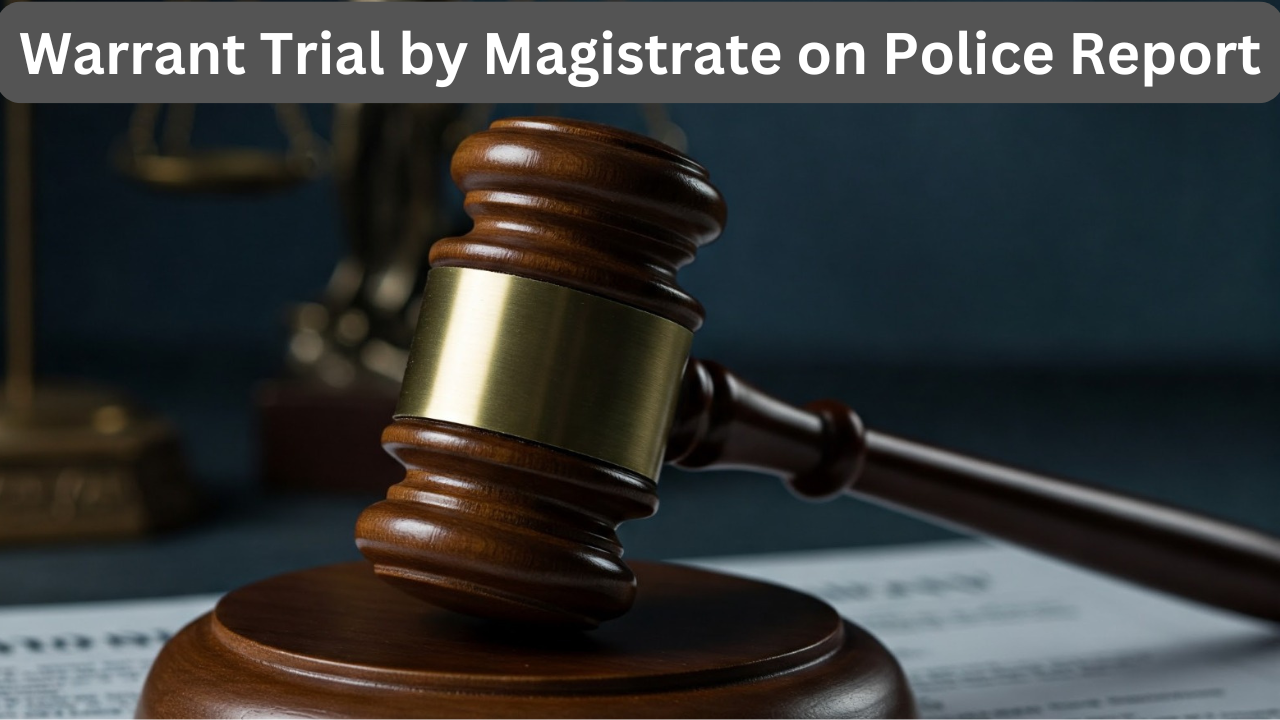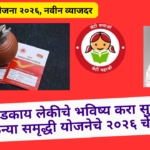On Police Report
Relevant CrPC Sections:
Sections 238, 239, 240, 241, 242, 243, 248, and 250 of the Code of Criminal Procedure (CrPC), 1973.
Warrant Cases:
- Offenses punishable with imprisonment exceeding two years are categorized as warrant cases.
- Magistrates’ jurisdiction varies based on the potential punishment:
- Up to 3 years: Judicial Magistrate First Class (JMFC)
- 3-7 years: Chief Judicial Magistrate (CJM)
- Exceeding 7 years: Court of Session
Section 238 (Compliance with Section 207):
Upon appearance or production of the accused, the magistrate must furnish (free of cost) copies of:
- Police Report (chargesheet)
- FIR (Section 154 CrPC)
- Witness statements (Section 161 CrPC), excluding portions claimed for exclusion by the police under Section 173(6) CrPC.
- Confessions (Section 164 CrPC)
- Other documents submitted under Section 173(5) CrPC.
This ensures a fair trial as guaranteed under Article 21 of the Constitution of India.
Pre-Trial Proceedings (Sections 238-240):
- Framing of charge is an interlocutory order, not a final order. It doesn’t terminate proceedings, unlike an order of discharge which is final.
- In warrant cases instituted on a police report, prosecution evidence is led only after charges are framed. This contrasts with complaint cases where evidence can be led both before (Section 244 CrPC) and after (Section 246(6) CrPC) framing charges. The accused has the right to cross-examine witnesses in both instances. (Ajay Kumar Goel v. State of Jharkhand, (2009) 14 SCC 115).
Concurrent Jurisdiction:
- If a single transaction leads to both summons and warrant case offenses, the warrant case procedure prevails. (State of Kerala v. E. Basar, 1970 KLT 650).
- If one accused’s offense is triable as a warrant case, while others’ are summons cases, warrant procedure applies. (M. Swami v. Mami, AIR 1949 Mad 76).
- When both a complaint and police report exist for the same offense against the same accused, the magistrate tries both jointly as a police report case (Section 210 CrPC). However, if the facts or offenses differ significantly, separate trials are necessary.
Section 239 (Discharge of Accused):
- Magistrate discharges the accused if the charge is deemed “groundless” after considering the police report, documents, examining the accused, and hearing both sides.
- Hearing under Sections 239 & 240 is limited to evaluating prosecution records. The accused cannot introduce new evidence at this stage. (State of Orissa v. State, (2005) 1 SCC 356). This overrules Sadish Mehta v. Delhi Administration, (1996) 9 SCC 76. The accused can only argue that the existing record is insufficient. (Bat Parikh v. CBI, (2008) 10 SCC 109; Ajay Kumar Parmar v. State of Rajasthan, (2012) 12 SCC 46).
- Shivalinga Murthy v. CBI, (2020) 2 SCC 768: The defense is not looked into at the discharge stage.
- State of Jammu and Kashmir v. Sudan Chakar, AIR 1995 SC 1954: Defense not considered at discharge stage.
- Niranjan Dandapani v. Gopal, (2017) 2 SCC 93: (Note: While this case suggests the court could use Section 91 CrPC suo motu, it seemingly contradicts the established principle from the three-judge bench in State of Orissa v. State.)
- The court’s role at the framing of charge stage is not to evaluate the sufficiency of evidence for a conviction but to ascertain if a prima facie case exists. (State of Delhi v. Ganavi, (2000) 8 SCC 239).
Section 240 (Framing of Charge):
- A charge is framed if the magistrate believes there are grounds to presume the accused committed a triable offense.
- Rules for framing charges are in Chapter 17 (Sections 211-224 CrPC):
- Part A (Sections 211-217): Form of charges
- Part B (Sections 218-224): Joinder of charges
- Section 218(1): Separate charge for each distinct offense, tried separately. Exceptions exist in Sections 219, 220, 221, and 223.
- Post framing of charge, the magistrate cannot revert to the pre-charge stage and discharge the accused (except under Sections 325 or 360). (Rall Banji v. State of Maharashtra, AIR 1979 SC 94).
- Even if the police report suggests no offense, the magistrate can independently examine the record and frame charges. (State of Orissa v. Habibullah Khan, (2003) 12 SCC 129).
- Framing charges in the absence of the accused (e.g., having anticipatory bail) is illegal. (HDFC Bank Ltd. v. J.J. Manan, (2010) 1 SCC 679).
- The charge must be explained to the accused in a language they understand.
Section 241 (Conviction on Plea of Guilt):
- The plea must be recorded in the accused’s own words. (State v. Bansi Singh, AIR 1960 MP 105).
- The magistrate has discretion to convict even with a guilty plea.
Section 242 (Evidence for Prosecution):
- Applies when the accused pleads not guilty, claims trial, or the magistrate doesn’t convict despite a guilty plea.
- The prosecution needn’t examine all witnesses (e.g., all those who chased the accused). (Shamari v. State of U.P., AIR 1976 SC 400).
- Non-examination of an injured witness isn’t fatal if other eyewitness testimony is credible. (State of U.P. v. Hakim Singh, AIR 1980 SC 184).
- Prosecution must examine material witnesses unless there’s a valid reason not to. Withholding a material witness warrants an adverse inference. (Abib Muhammad v. State of Hyderabad, AIR 1954 SC 51).
Section 313 Examination:
- Accused is examined to explain incriminating circumstances from the prosecution’s evidence. This is a crucial component of a fair trial.
- Each incriminating circumstance must be put to the accused individually, not as compound questions. (Abu v. State of Kerala, 2010 CriLJ 2324).
- No oath is administered. The accused can’t be punished for refusing to answer or giving false answers. Answers can be considered for or against them. (State of Maharashtra v. Dr. R.B. Chowdhary, AIR 1968 SC 110).
Section 243(1) (Defense Evidence):
- Unlike summons cases, the accused has the right to present defense evidence in warrant trials.
- The court must call upon the accused to present their defense. Denial of this right violates the right to a fair trial. (Kalani Basar v. E.M. Sam, (2007) 2 SCC 258; T. Nagappa v. Y. Murali, (2008) 5 SCC 63).
Section 243(2) (Steps to Defense):
- Accused must be given an opportunity to lead evidence. If the court refuses to summon defense witnesses, written reasons must be recorded. (CBI v. T. Gnanasekaran, (2013) 9 SCC 611).
- The complainant cannot be summoned as a defense witness. (C.K. Gareeban v. Shafi, 2002 CriLJ 1289; Thomas v. Vijayakumar, 2002 CriLJ 3108).
Section 248(1) (Acquittal on Merits):
- Acquittal follows if the accused is found not guilty after considering the evidence. (Har Chakari v. State of West Bengal, AIR 1954 SC 26).
Section 248(2) (Finding of Guilt and Sentencing):
- If guilty, the magistrate hears the accused on sentencing and passes sentence (unless Sections 325 or 360 apply).
- Sentencing must consider the social impact of the crime. Leniency in serious crimes can be counterproductive. (State of Madhya Pradesh v. Salim, (2005) 5 SCC 554).
- Section 248(3) (Previous Conviction):
- Charge for previous conviction (Section 217 CrPC) can be included with the main charge, but it should not be read to the accused, nor should a plea be taken until after conviction on the main charge.
Section 250 (Compensation for Accusation Without Reasonable Cause):
- Applies to cases instituted on a complaint or police/magistrate information, triable by a magistrate.
- Conditions:
- No reasonable ground for accusation.
- Action taken simultaneously with discharge/acquittal.
- Sufficient time allowed for showing cause.
- Order clearly states lack of reasonable ground.
- This provision discourages abuse of process and harassment. (Emperor v. Jangar, AIR 1943 Bom 6).
- Applies to summon and warrant cases, to be used summarily. The complainant is not liable if police wrongly prosecuted someone based on their complaint. (Om Prakash v. State of Rajasthan, 1975 CriLJ 196).
- Applies to IPC offenses and others triable by a magistrate. (N. Nanjappa v. Ramiah, AIR 1954 Pun 145).
- Only the magistrate who discharged/acquitted can initiate action under this section. (Nandakumar Krishnaji Nirle v. State of Maharashtra, (1998) 2 SCC 35). This clarifies the “same magistrate” requirement.
![]()









